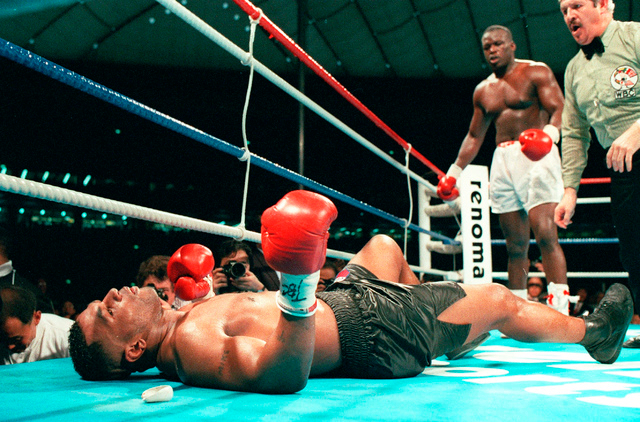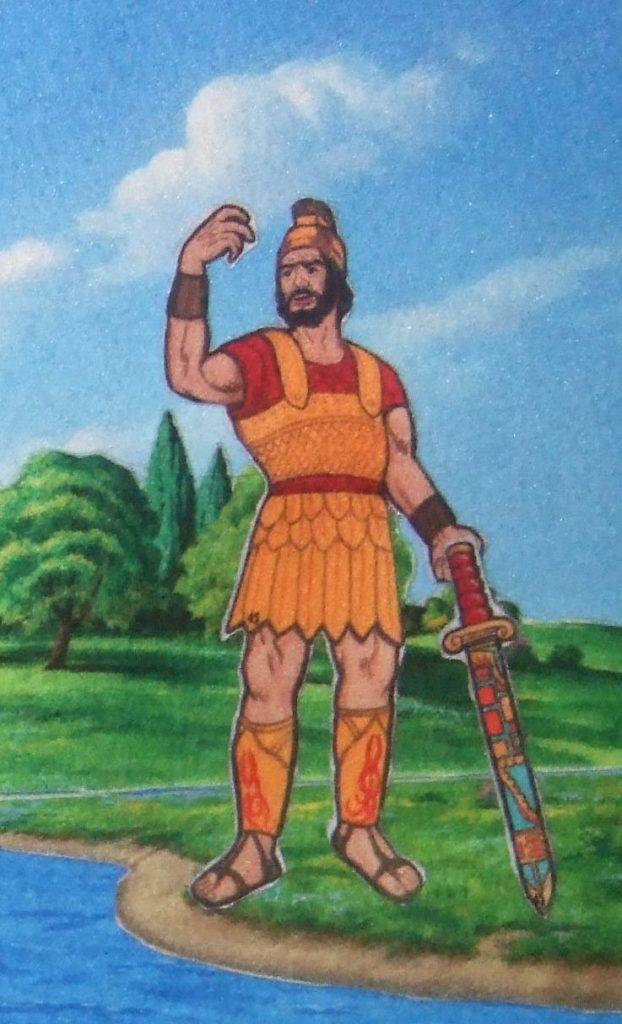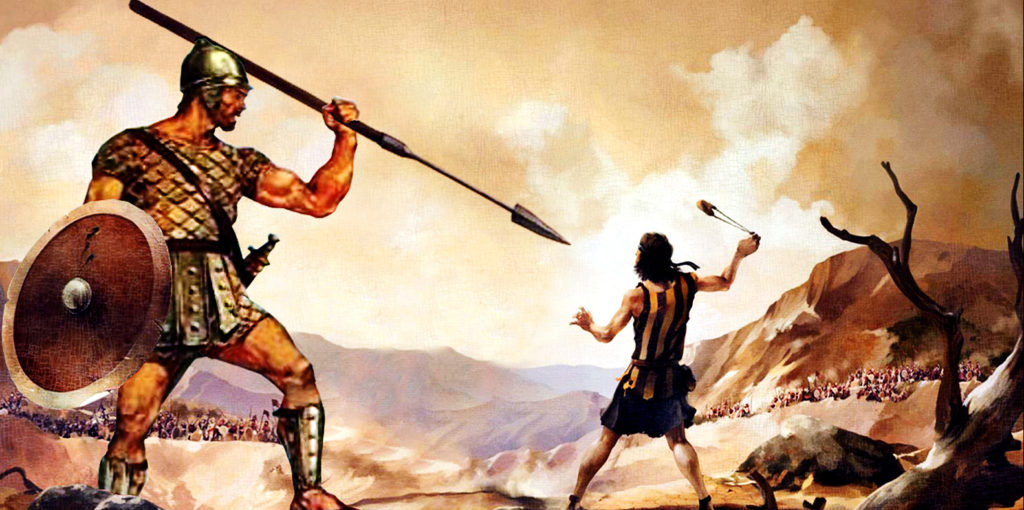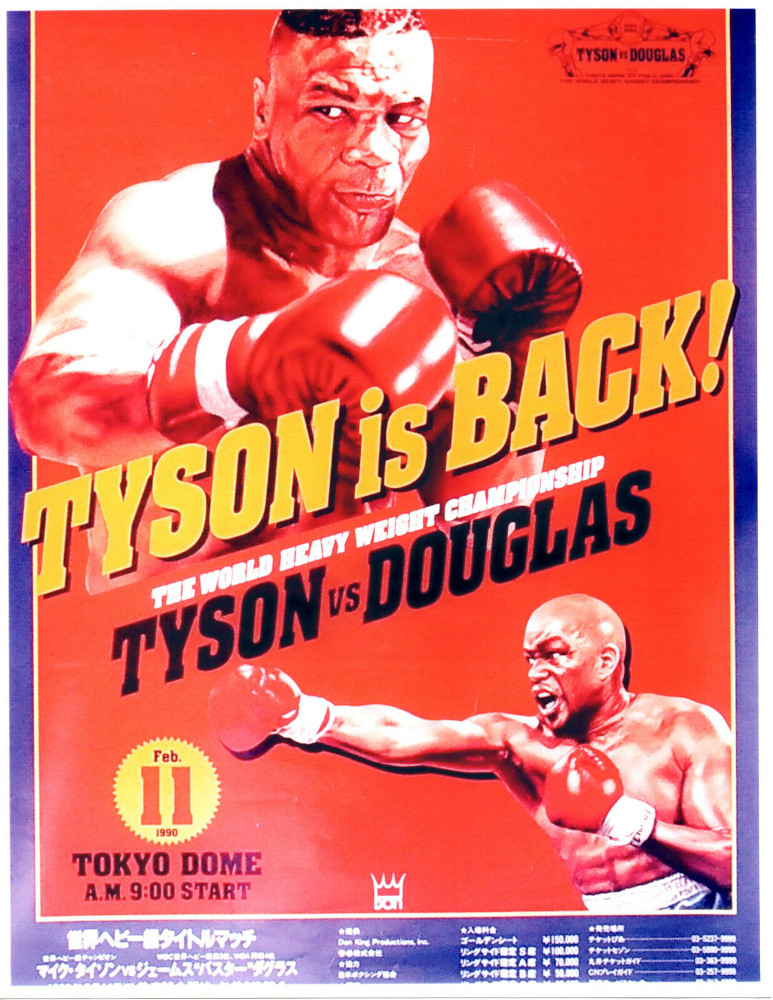A “dark horse” is a contender about whom little is known but who unexpectedly wins the competition. In the world of boxing, James “Buster” Douglas is the poster boy of a dark horse.
The boxing champ
It was 1990 and this dark horse was set to fight Mike Tyson the undefeated and undisputed heavyweight champion of the world. He held the WBC, WBA, and IBF titles. Most considered this fight to be a warm-up bout for Tyson before meeting up with then-undefeated number 1 heavyweight contender Evander Holyfield. All Tyson had to do was take Douglas out early in the fight, collect his pay and then prepare for an even bigger paycheque with Holyfield.
This fight was so mismatched that Las Vegas found it difficult to put out any odds on it. In the last days leading up to the match, Douglas was listed as the underdog with 42:1 odds against him.
The boxing challenger
Mike Tyson was an animal in the ring. His typical bouts didn’t last long and usually ended in big knockouts. Buster Douglas on the other hand, was a sound boxer with a good track record of his own. What seemed to be lacking was zeal. He didn’t appear to have the heart of a champion. His fights brought more boredom than excitement to the spectators. He was a solid fighter with a traditional stance and swing, yet he just seemed to be lacking that one quality of heart that separated the great from the good.
However, something had happened leading up to the fight. Three weeks before the match Buster’s mother died. The two were very close and her death had a rousing effect on Douglas resulting in a strikingly more intense training leading up to fight day.
The boxing contest
On February 11, 1990, in the Tokyo Dome, a subdued Japanese crowd was assembled to watch the heavyweight champion of the world conquer another victim. The fight took place at nine in the morning. The theater that staged boxing’s most startling drama was a strangely quiet one.
Some experts quipped that it would be a 90-second flight, but they were wrong. The fight last into 10 rounds. It was a major slugfest with Tyson absorbing most of the blows. Even after being knocked down in the eighth round, Douglas got up and continued his attacks against the champion.
The sportswriters were amazed at Buster Douglas’ focus. He was a man on a mission. He was a man without fear of his famous opponent. Halfway through the fight onlookers began to see the possibility of a major upset. Little was known of this dark horse, and little was expected but that was soon all to change.
The boxing hero
The fight ended 23 seconds into round 10 when Douglas delivered a crushing blow to the champion’s head sending him crashing to the canvass. Tyson was down for the count. A new champion was crowned.

As a sports commentator put it, “and suddenly, Mike Tyson, perceived as this giant monolith has been reduced to being another heavyweight champion who got defeated.”
When asked ringside why he won the fight, Buster responded, “because I wanted it. Because of my mother, God bless her heart.” The challenger turned champ then broke into tears.
Minutes later, still in the ring, Douglas said, I wasn’t afraid of the man, because I believe in God, that’s the only Man I fear … the Lord Jesus Christ.”
What makes a person a dark horse is the fact that inside of this unknown commodity there burns a heart of passion that is focused on one purpose and neither the heart nor the cause is seen by the opponent until it is too late.
A real David and Goliath matchup
The Douglas–Tyson fight reminds us of another match that took place 3,000 years earlier. The fight’s account is not found on the pages of a sports column but rather on the pages of the Old Testament Bible. 1 Samuel 17 presents us with the original David and Goliath fight from which emerges a dark horse of great renown.
The land of Canaan was predominately occupied by the Israelites (Hebrews), but the Philistines wanted their space. In attempts to conquer the cities of the Hebrews, the Philistines traveled through a valley called Elah from the Mediterranean Sea into the interior of Israel. It was in the midst of this valley that they were met by the Israelite army. A stalemate ensued with the Israelites camped along the northern hills of the valley and the Philistines on the southern hills.
It was deemed that the best way to break this stalemate was to have one warrior from each side meet in the middle and fight it out with the winning side taking the land.
The Philistine champion
The Philistines had a warrior named Goliath. His name in the Philistine language meant “splendour”. He was obviously a magnificent figure to behold!
The Bible refers to him as a “champion”. In the Hebrew language that referred to a man who was noted as being a great man. In sports, his fans would simply refer to him as “THE man”. He was in a league of his own.

Goliath was a well-experienced undefeated warrior. We are not given his exact weight at weigh-in time, but we do know that he stood an amazing nine-foot nine-inches tall with the strength of an ox! There was so much on the line for the Israelites. If their challenger lost, they would all lose everything.
The dark horse challenger
For years, the Israelites looked to King Saul as their leader, their champion. Saul was not as enormous as Goliath, but he was a leading man of war and stood head and shoulders above the rest of the men of Israel.
He was used to gazing down upon others, but now, Saul was gazing up at Goliath and staring down at failure. Neither he nor his mighty men had the courage within themselves to challenge the giant Philistine.
Sometimes God makes us wait in a very difficult situation before He intercedes for us. And now enters this dark horse. A man by the name of Jesse had sons who were at the battle, and he wanted an update. Perhaps as an excuse to get this, he sent his youngest son, David, to deliver some food to these warriors and to inquire about their status.
1Sa. 17:20 And David rose up early in the morning, and left the sheep with a keeper, and took, and went, as Jesse had commanded him; and he came to the trench, as the host was going forth to the fight, and shouted for the battle.
1Sa. 17:21 For Israel and the Philistines had put the battle in array, army against army.
A giant challenge
David takes the stuff that his father had him deliver and gives it to the person in charge of supplies. Immediately, he saw his brothers and ran towards them. It appears to have been a happy reunion until David hears the threats from Goliath and inquires about the rewards for the man who takes the giant down.
1Sa. 17:25 And the men of Israel said, Have ye seen this man that is come up? surely to defy Israel is he come up: and it shall be, that the man who killeth him, the king will enrich him with great riches, and will give him his daughter, and make his father’s house free in Israel.
1Sa. 17:26 And David spake to the men that stood by him, saying, What shall be done to the man that killeth this Philistine, and taketh away the reproach from Israel? for who is this uncircumcised Philistine, that he should defy the armies of the living God?
1Sa. 17:27 And the people answered him after this manner, saying, So shall it be done to the man that killeth him.
A public question
David pursued his questioning to confirm exactly what the reward should be, and people started to notice his interest. Quickly, he was escorted into the presence of the king. This was a sure sign of the desperation that existed within the Hebrew army. Could it be possible that there was a man in Israel who was brave enough to take on Goliath? Rapidly, David is brought before King Saul.
There is something powerful that drives a “dark horse” challenger. It is not unrealistic confidence that they possess, but rather unrecognized courage. David was bold in a situation where most would back down. David knew about something inside himself that others were unable to see. This shepherd boy’s first words spoken before the king were in the form of a command.
He said, “Let no man’s heart fail because of him.”
David became specific in his audience with the king. He said, “thy servant will go and fight with this Philistine.”
In his words, you can feel the disregard that David had towards Goliath. He would not even use his name. To David he was just another pagan Philistine. David treated Goliath with the same hatred as Goliath treated the Hebrew God, Jehovah.
David’s response tells us why Saul quickly changed his mind about the young man sending him into the battle.
A secret proclamation
Before heading into the fight, David had one more thing to say to the king based on his previous winning fights with a lion and a bear in the wilderness. He said: “The LORD … delivered me …”. This statement would prove to be as prophetical as it was historical.
“And Saul said unto David, Go, and the LORD be with thee.” (v. 37)
Dark horse entering into the ring
After being issued permission from King Saul to go into the ring and fight, David chooses the equipment that he had proven over his young life to be most effective for him.
1Sa. 17:40 And he took his staff in his hand, and chose him five smooth stones out of the brook, and put them in a shepherd’s bag which he had, even in a scrip; and his sling was in his hand: and he drew near to the Philistine.
David’s equipment simply consisted of:
“staff” which is a shepherd’s traveling stick
“scrip” which is a traveling pouch
“sling” which is a strap used to hurl stones
All three of these items are things to be used while in motion. The staff and the script are designed for the shepherd to move along the countryside. The sling is designed to be in motion in order to release its ammunition. In this case, David chose five smooth stones from the brook that flowed through the middle of the valley.
Showdown
And now, the showdown!
1Sa. 17:40 “… and he [David] drew near to the Philistine.”
1Sa. 17:41 “And the Philistine came on and drew near unto David ….”
The action in verses 40 and 41 is straight out of an old western movie. You can literally picture David and Goliath carefully walking towards each other with their hands near their gun waiting for the first man to draw.
1Sa. 17:42 And when the Philistine looked about, and saw David, he disdained him: for he was but a youth, and ruddy, and of a fair countenance.
As Goliath surveyed the landscape it appears that he was looking for someone else other than a lowly shepherd boy. When he saw that David was alone and that he was the one chosen by Israel to challenge the champion, Goliath was furious. Scripture says that he focused all his hatred on David, despising him because of his appearance.
Not only was David a teenager, but he was also ruddy, meaning he had a healthy red coloured complexion much like a baby’s bottom. Besides the rosy, red cheeks, David was of a fair countenance, that is, he was handsome to look at.
Lacking were the signs of age. There was no weathering of wrinkles and blemishes to his skin. Lacking were the signs of war. There were no scars or broken teeth or even a disjointed nose. This was a major insult to the champion who wanted a major battle with a serious contender.
Trash talk
1Sa. 17:43 And the Philistine said unto David, Am I a dog, that thou comest to me with staves? And the Philistine cursed David by his gods.
The Philistine was insulted that this young man had no shield or spear. Goliath felt that David was treating him like a dog because all he had was a shepherd’s staff. It was obvious that Goliath was not looking at David’s other hand which held his sling as the giant made no mention of it. This would prove to be a giant mistake for the tall man.
Round 1
Round 1: Goliath made the first move by walking towards the challenger. David responded immediately by running quickly towards the giant. Talk-time was over, time for decisive action was now in play. David was not only running towards Goliath, but he was also running in the direction of the entire Philistine army! There was no turning back.
1Sa. 17:49 And David put his hand in his bag, and took thence a stone, and slang it, and smote the Philistine in his forehead, that the stone sunk into his forehead; and he fell upon his face to the earth.

Without missing a stride, David multitasked by grabbing a stone from his pouch and loading up his sling. Without hesitation, he released the stone and struck Goliath square to the forehead. The stone traveled so fast that it buried itself into his skull as if it were always there and was always a part of him. Goliath fell face-forward to the ground.
Round 2
Round 2:
1Sa. 17:51 Therefore David ran, and stood upon the Philistine, and took his sword, and drew it out of the sheath thereof, and slew him, and cut off his head therewith. And when the Philistines saw their champion was dead, they fled.
Verse 51 tells us that David ensured that Goliath was dead by cutting off his head with the giant’s own sword. This would be a clear demonstration to the Philistine army that if Goliath was not dead before, he certainly was now. This led into the 3rd and final round of the match.
Round 3
Observing David severing their champion’s head, all the Philistines ran for the hills and toward their home cities.
Why is it that the great military army of the Philistines turn and ran like cowards when Goliath was killed? It looks like the Philistines had the same problem that the Israelites did, they overestimated the importance of Goliath. They let their eyes and ears be persuaded by the giant’s size and boastings.
What prevented the Hebrews from initially attacking was the same thing that prevented the Philistines from ultimately defending. Both sides were controlled by someone who in hindsight really didn’t matter.
How many successes in our lives have been put on hold because of someone or something that later turned out to be absolutely nothing to worry about?
Let it be known that prior to this only David was “shouting for the battle” (v. 20.) Now with Goliath dead, the Israelites also shouted victoriously and chased after the fleeing army, killing many, and even looting their tents. This was a good day, a very good day for the nation of Israel.
The trophy for the dark horse
1Sa. 17:54 And David took the head of the Philistine, and brought it to Jerusalem; but he put his armour in his tent.
It is interesting to note that the only spoil David took for himself was that of Goliath’s armor. Why did he do that? Goliath’s protective clothing would be too large and heavy for David. Instead of wearing it, this armor would be David’s trophy, his heavyweight title belt.
Additionally, David took Goliath’s armour as a reminder that there is no earthly defence against God. The best man has to offer does not hold up against the mighty God of Israel.
David was moving from challenger to champion. Yet, there would be more fights in his future before he could claim it all.
Conclusion
David is the definition of a “dark horse”. No one believed in him. But David could see what others could not. He believed in his skills, he believed in his commitment, and ultimately, he believed in his God’s power. May we learn never to judge on the outside appearance of a person.
This chapter is not only a turning point in Israel’s history but all of human history. Thanks to the fame wicked Goliath gave to David, this young shepherd boy would one day be king and the founder of a new dynasty for Israel. But David’s dynasty has not ended, it has only been put on hold. One day, Jesus Christ will reign one thousand years on the throne of David.
What took place in 1 Samuel 17, affects all of us today and most certainly far into our future. David, the dark horse in our story will be followed by Jesus, riding on a white horse into worldwide victory.
So what?
In the Bible, we read that God has a plan, a scheme for the history of mankind. We have previously investigated the changes He has made to this world through Creation, Curse, Cataclysm, Confusion, Chosen, Commandments, and Country. Now, God provides us with a Crown from which to rule Israel and finally the entire world. God now has a kingly dynasty through David for which the world would ultimately be blessed through King Jesus!
Care to comment on this?
Sign in and leave a comment at the bottom of this blog post. I would love to know your thoughts!
Until the next post, keep searching the DIVINE SCHEME!
Regards,
Mike MacDonald
– – – – – –
Hey SCHEEMERS, tap our SUBSCRIBE button and become a member of the DIVINE SCHEME UNIVERSE! Your benefits will include:
1) You will receive the very first notification of all new releases of blogs, podcasts, and novels associated with the Divine Scheme universe;
2) You will learn how to challenge Pop Theology and faulty beliefs to ensure you are inline with God’s reality; and
3) You will be entertainingly exposed to AMAZING concepts from God’s perspective (no need for myth and make believe). I guarantee you; God’s scheme is far more exciting and fulfilling to the soul than anything man could ever produce!
– – – – – –
About Mike MacDonald:
As an ordained theologian, Mike has served in many gospel ventures.
He has been a church pastor, chaplain, seminary vice-president,
Christian school principal, and creation evangelist. These roles have
built up an expertise in Mike’s ability to help people discover the true
essence of the Bible and how to make it apply in everyday life.


